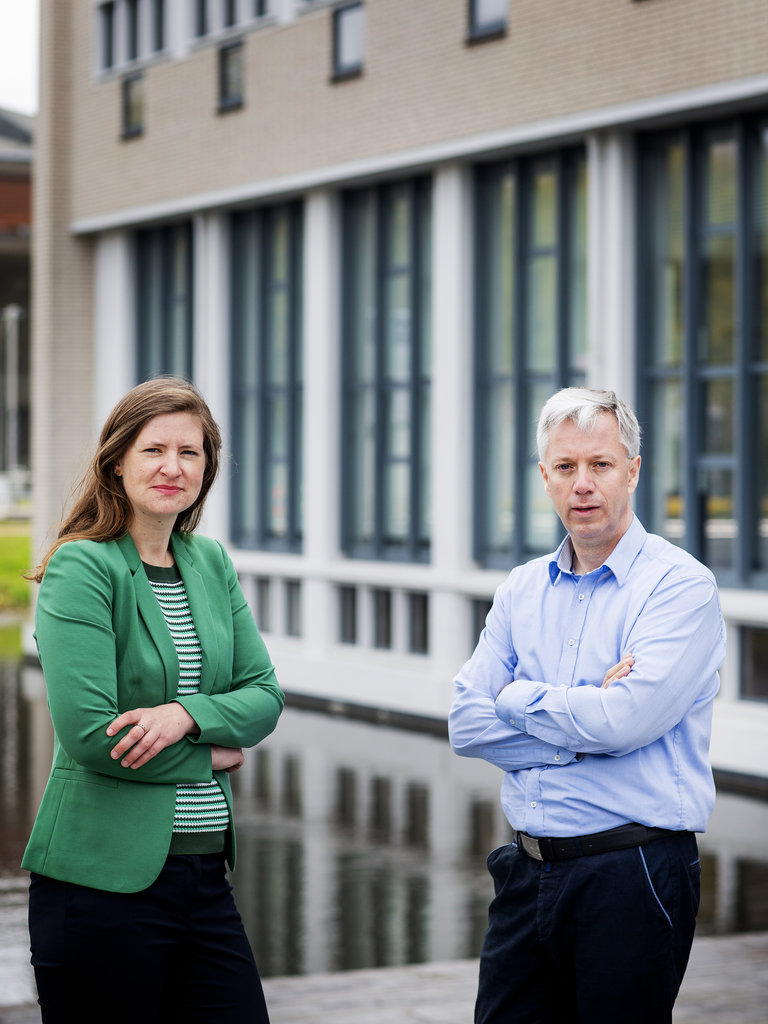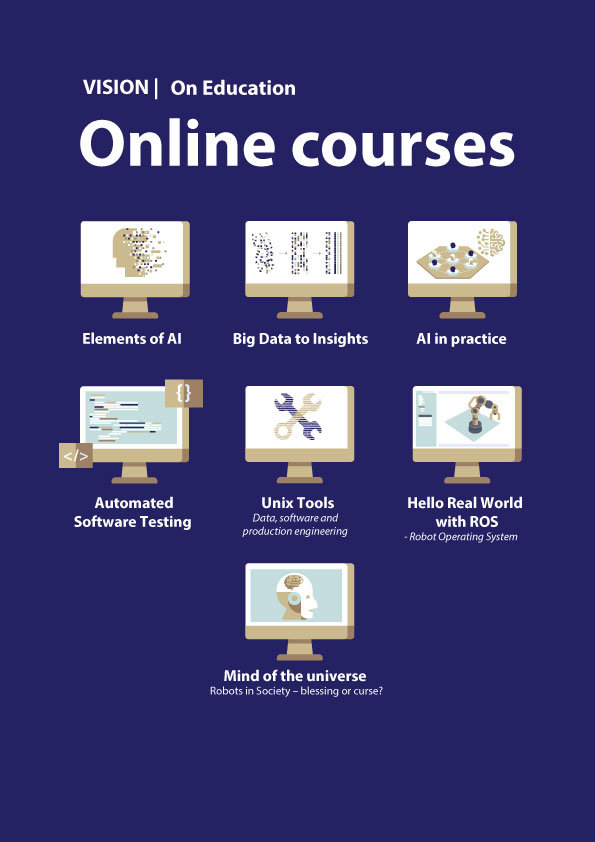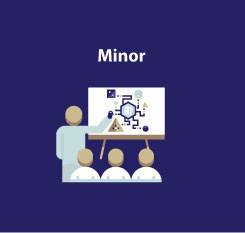
All TU Delft students to be educated in AI
By Jurjen Slump
TU Delft's AI Initiative is due to have a major, and unique, impact on education. All students at TU Delft will have the opportunity to get educated in AI. The Taskforce Education AI, Data & Digitalisation has been set up to manage implementation. Willem-Paul Brinkman and Susanne van Aardenne, both members of the working group, tell us more about this transition.
Van Aardenne's current position is that of Education Advisor Innovation at the Faculty of Electrical Engineering, Mathematics and Computer Science (EEMCS). Brinkman is associate professor in Interactive Intelligence and Director of Studies at the faculty. Their experience will be most useful in the working towards the TU Delft AI Initiative's objective of offering every student at TU Delft education in AI.
Why are we putting such a focus on AI in our education?
Brinkman: “Everyone at TU Delft is confronted by AI in one way or another, so it is important that every student is taught about AI, not incidentally, in a single course but, where relevant, as an integral part of the curriculum. As a university of technology we distinguish ourselves by our ‘engineering approach', and we wish to make this strong focus on technical applications part of our AI education too.”
Van Aardenne: “As far as this is concerned, we are busy developing a unique proposition. No other university in the Netherlands is doing this.” This sounds like a monumental operation.
How will you manage it?
Van Aardenne: “We have the advantage of being a university of technology - mathematics forms parts of almost every student's programme. We already offer a lot of AI education, yet accessible basic knowledge in AI is new to students in certain degree programmes. The minor Engineering with AI is the initial solution we will be offering them.”
Brinkman: “We have a short as well as long-term view of the matter. In the short term we will be initiating the minor, the pilot of which will be starting in the new academic year. In the longer term, we want to help degree programmes integrate AI education in their curricula. This involves considerable organisation. We are talking to the faculties, degree programmes and individual lecturers about how this is to be done.”
Van Aardenne: “We are also discussing this within our convergence with Erasmus University Rotterdam and Leiden University. This collaboration, of which the minor pilot is a first step, is structured to allow students from varying backgrounds to learn about AI together, and thus learn from one another while applying AI in practice.”
How will this focus on technical applications be reflected?
Brinkman: “The twenty-four Delft AI labs that are being set up will play a major role here. TU Delft has consciously chosen to develop knowledge and education in the field of AI within the various faculties in ways that are closely applicable to specific domains, as they are researched within these labs.”
Van Aardenne: “An additional advantage is the wonderful cross-pollination between faculties, and hence the strengthening of the transfer of knowledge among themselves. And that is not limited to Delft.”

How is the ethical aspect of AI safeguarded in the teaching?
Brinkman: “We train responsible engineers. Particularly where AI is concerned, students must understand the possible implications of the algorithms they are using or developing. They need to understand that a certain bias can be introduced when algorithms are trained using incorrect data. We are teaching students how to work responsibly with AI techniques in a social context.”
Van Aardenne: “Here, too, the AI labs have an important role to play in embedding these key values, since the labs are linked to specific domains in which theory and practice come together. It is our ambition to link student projects to these labs so that students can experience first-hand the consequences of applying the theory in practice, and can learn from this.”
Do lecturers who haven't had much experience of AI also need to brush up their knowledge?
Van Aardenne: “That varies from one lecturer to the next, but we want to give all our lecturers the opportunity to get further training. That project is known as ‘teach the teacher’. In this way we will make it possible for them eventually to lecture on AI themselves. We also plan to do this for PhD candidates.
Brinkman: “We want as many people as possible to receive the AI education that is relevant to them, from students to lecturers to PhD candidates. We want to see how we can address everyone's needs.”
Will AI also be given centre stage in TU Delft's online education, the MOOCS?
Brinkman: “Yes, and that is not limited to TU Delft. Together with the Netherlands AI Coalition, we recently launched the Dutch version of the Elements of AI course. This is a free online course that gives participants insight into the basics of AI. This course is also interesting for business or public-sector professionals who encounter AI.”
Van Aardenne: “We offer various online courses in the field of AI, Data & Digitalisation. The Elements of AI course is also worthwhile for secondary school pupils who are deciding on their further education. Together with the Innovation Center for Artificial Intelligence, we have also developed the AI in Practice programme for business professionals. AI will affect society as a whole and we as a university want to ensure that our curriculum addresses that fact.”

Engineering with AI
If you have an interest in creating AI-enabled solutions themselves, this minor is set up for you. It will require your technical understanding of both the underlying data fed into the AI system and the algorithm running the AI system. You will also be acquainted with the limitations and ethical considerations of AI. You will get to know all the ins and outs of AI, will be able to tune settings or implement specific AI algorithms in software, and will learn what is ‘under the hood’ of the AI toolkit.
AIED – TU Delft in AI and Education
Not only education in AI will increase significantly, the use of AI as a tool for education is also on the rise. TU Delft accelerates educational innovation with advances from AI, data and digialisation, such as data-driven analytics and large-scale automated feedback. This is done within the AIED programme (TU Delft in AI and Education), led by Professor for Digital Education Marcus Specht.
Specht: “The goal of AIED is to support and facilitate students and teachers with AI. Educational tools based on data-driven methods and machine learning offer many new possibilities. For example, we can assess the quality of essays with AI tools or build a tutoring system for complex skills.
These are hybrid intelligent systems, which form an interplay of teacher, student and AI. Thanks to the automated feedback and the use of AI for coaching, the support of students can be expanded and teachers are given the opportunity to use their time more efficiently.
We are currently investigating various initiatives to give these hybrid intelligent systems a place in education. The challenges lie, among other things, in making these models suitable for various application areas. We work closely with teachers and researchers to further develop the use of AI, both at a theoretical level and its application.”